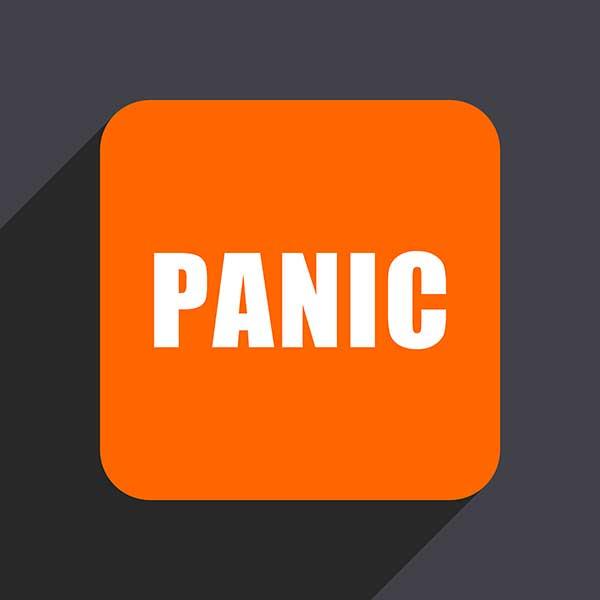What are panic attacks?

What are Panic Attacks?
Imagine waking up to discover you’ve been kidnapped. Your attackers have you in a helicopter and you’re hovering over a surging ocean. Without warning, they grab you and throw you out of the helicopter. As the limitless ocean races up to meet you, you wonder if you have the strength to swim, if there are sharks, if you’ll drown, if you’ll ever see your family again.
Would you panic?
Now, imagine experiencing all the terrifying, panic-stricken emotions of that life-threatening event while sipping coffee at your favorite café in the mall. That’s what an anxiety attack is: a wave of overwhelming fear, along with a host of uncomfortable and frightening symptoms, that is completely out of proportion to what’s going on around you. According to the National Institute on Mental Health, while researchers don’t understand exactly what causes panic attacks, they do believe that the brain suddenly misinterprets harmless signals as serious threats and raises the body’s highest alarms.
Anyone who’s experienced anxiety attacks knows that the worst part of them is the paralyzing fear that you’ll have another one. That’s what leads people to avoid certain situations, even isolating themselves from friends and family, in an effort to control their anxiety. However, this is anxiety controlling the sufferer, not the other way around.
Mental Health Benefits of Adult Coloring
Common Panic Attack Symptoms
The Anxiety and Depression Association of America defines a panic attack as an episode that involves at least four of the following symptoms:
- Shortness of breath
- Chest pains/discomfort
- Racing/pounding/erratic heart beat
- Sensations of heat or chills
- Faintness/light-headedness/dizziness
- Abdominal pain/gastrointestinal distress
- Tingling or numbness in extremities
- Fear of losing control or going crazy
- Fear of dying
- Feelings of unreality
- Feelings of being outside your body
Studies show that women are twice as likely to suffer panic attacks as men, according to the ADAA. Once you’ve had a panic attack, more are likely to follow. The more you have, the more likely you’ll notice they happen around a set of triggers that are unique to you. Research has shown that panic disorders tend to be genetic. Stressful life events, like marriage, divorce, a major move or a big job change, can be the catalyst that initiates a cycle of panic attacks.
Please note that panic attacks are a genuine and treatable medical condition. They aren’t a sign that you’re losing your mind or are somehow strange and different from other people. According to the AADA, anxiety disorders affect as many as 40 million people in the U.S. alone.
How Panic Attacks are Treated
For immediate relief, benzodiazepines are useful medications. Your doctor will evaluate your current prescriptions and your lifestyle before providing these, as they can have negative interactions with alcohol and other medications, and can also be addictive. Benzodiazepines include Xanax, Klonopin and Ativan. They act as depressants to the central nervous system, effectively pulling the plug on an impending or active panic attack. Benzodiazepines are rarely used long-term and are generally meant as an immediate fix.
Anti-depressants like Wellbutrin, Paxil and Zoloft are better than benzodiazepines at treating panic attacks in the long-term, before they occur. These medications control the amount of serotonin that’s available to the brain. According to Healthline (healthline.com), serotonin is thought to regulate mood, happiness, sleep and digestion. These mood-boosting qualities fight off the frequency of panic attacks.
Psychotherapy is another crucial element in the treatment of anxiety. Through approaches like cognitive therapy, you’ll gain the tools to help you cope when you’re having an attack. You may practice exposure therapy, where you deliberately put yourself in triggering situations to desensitize your reaction to them, or opposite action therapy, where you purposely do the opposite of what your symptoms are demanding that you do. This puts control back into the hands of a person who is feeling vulnerable and very out of control.
If you or someone you know suffers from anxiety and panic attacks, reach out for help. The stigma surrounding mental health is steadily dissipating, as the entire field of health recognizes that the health of the mind is every bit as important as the health of the body. Have an honest conversation with your doctor and get on the path to taking control of your life as soon as possible.
See also:




